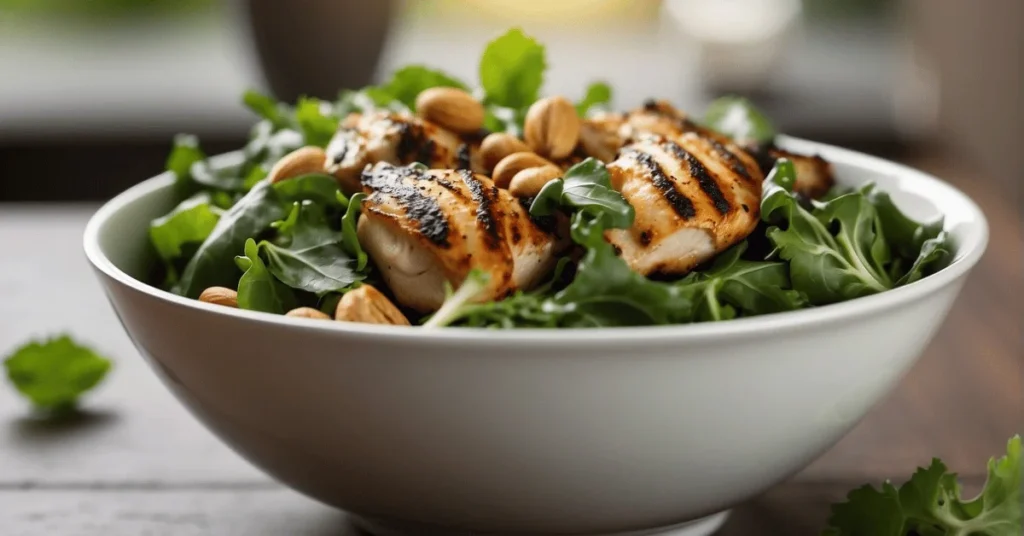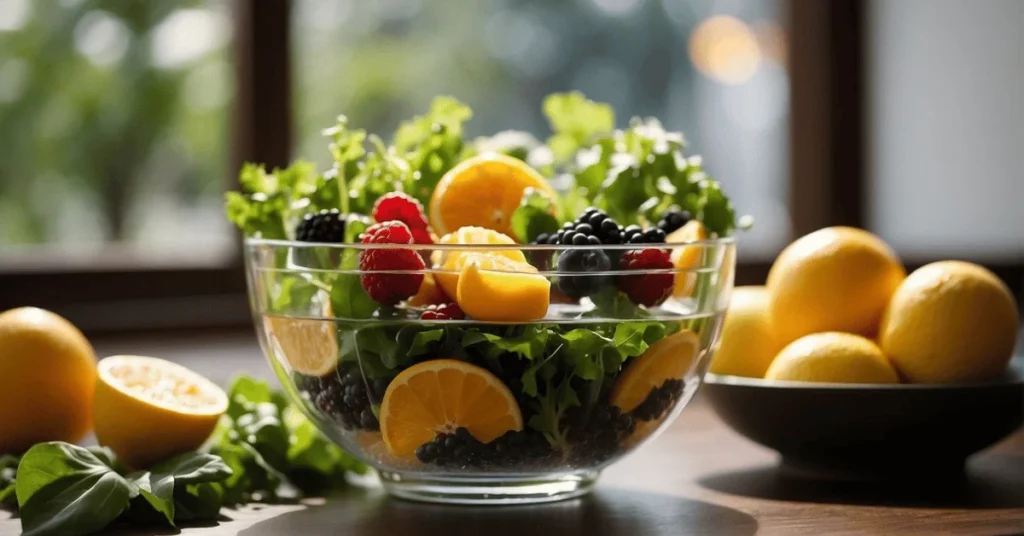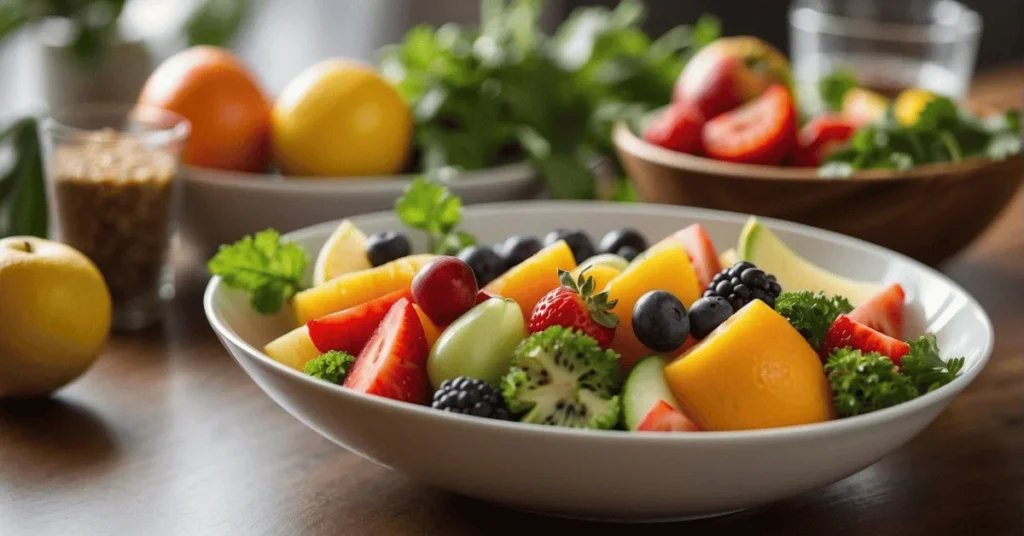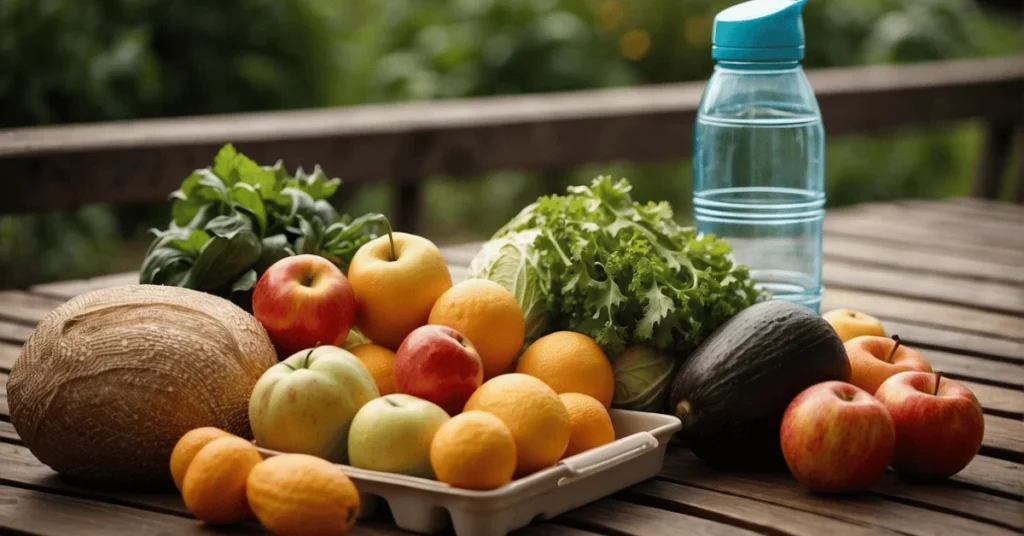In our increasingly complex world, it can often feel like we’re juggling too much, especially when it comes to our diet and health. That’s why embracing a minimalist diet can be transformative. By paring down our food choices to the essentials, we simplify not just what we eat, but how we live. Let’s consider this approach not as a restrictive diet but as a lifestyle that enhances our health and well-being.
When we talk about a minimalist diet, we’re referring to the intentional selection of food that promotes simplicity and nutrition. It’s a conscious decision to focus on whole, unprocessed foods and to clear the clutter from our meals. We’re not just streamlining our pantries but also nurturing our bodies more mindfully. The beauty of this diet lies in its flexibility and its gentle nudge towards ethical and sustainable eating practices.
Key Takeaways
- Simplifying food choices enhances lifestyle and health.
- A minimalist diet focuses on whole, unprocessed foods.
- This approach is flexible and promotes sustainable eating.
Foundations of a Minimalist Diet
Embarking on a minimalist diet means embracing simplicity in our eating habits. It’s about focusing on what genuinely nourishes us and reducing the excess that often complicates our meals and our health. Let’s explore how we can apply the fundamentals of minimalism to our plates, ensuring that our food choices reflect our commitment to both health and sustainability.
Core Principles
In a minimalist diet, simplicity reigns. We prioritize whole foods, valuing the fresh flavors that come from fruits and vegetables without the need for excess seasoning or complex recipes. Mindful eating becomes part of our routine, allowing us to savor each nutrient-dense bite and recognize our nutritional needs. By sticking to basics, we not only support our health but also practice sustainability, choosing seasonal produce that’s kinder to the planet.
- Whole Foods: Integrating primarily unprocessed foods.
- Simplicity: Emphasizing ease in preparation and consumption.
- Mindfulness: Being fully present during meals.
- Sustainability: Opting for eco-friendly, seasonal, and local foods.
Health Benefits
Our health thrives when we cut through the clutter of modern diets. By reducing our intake of processed items and emphasizing natural sources like vegetables and quality vegetable oil, we offer our body the nutrient-dense fuel it deserves. Water becomes our primary beverage, vital for life and utterly simple in its perfection. This minimalist approach not only helps us maintain a healthier lifestyle but can also lead to improved digestion and overall well-being.
Choosing Quality Over Quantity
We believe in the power of exceptional quality. Rather than an abundance of mediocre options, our minimalist diet involves selecting the finest, sustainable choices that meet our nutritional needs. This selectivity ensures that every meal is both nutrient-dense and aligns with our philosophy. It’s not about deprivation; it’s about embracing the wealth of benefits that come from purity and minimizing the superfluous in our diet.
Let’s Implement the Minimalist Diet

Embarking on the minimalist diet, we focus on simplicity, nourishing our bodies with whole foods, eliminating unnecessary choices, reducing food waste, and embracing practices that enrich our overall well-being. We mirror the ethos of Michael Pollan to “Eat food, not too much, mostly plants,” aiming for meals that are not just sustenance but a form of gratitude toward our bodies.
Our Meal Planning and Prep
We prioritize meal planning to streamline our weekly routine. We opt for simple recipes that feature 10 ingredients or less, aligning with a minimalist approach. Here is a basic structure we follow:
- Monday to Friday:
- Breakfast: Oatmeal with seasonal fruits
- Lunch: Mixed beans salad with olive oil dressing
- Dinner: Stir-fried vegetables with tofu or grilled chicken
- Weekend Special:
- Breakfast: Homemade whole-grain bread with avocado
- Dinner: Vegetarian pasta with tomato sauce and a side of greens
Our staple meals rotate but remain grounded in minimally processed foods. We match our shopping list to the meal plan, ensuring every purchased item has a place on our plate, thus minimizing waste.
Mindful Eating Practices
Mindfulness in eating is akin to meditation. It’s about being present with every bite and savoring the flavors and textures. We teach ourselves to eat slowly, relish our meals, and listen to our bodies’ hunger and fullness cues. This practice aids us in appreciating the food we have and reduces the likelihood of overeating.
Shopping for Minimalist Foods
When we shop, we aim to fill our carts with core ingredients. We look for:
- Fresh Produce: Emphasizing fruits and vegetables, particularly those in season
- Whole Grains: Such as brown rice, barley, and quinoa
- Protein: Opting for plant-based like lentils, chickpeas, and occasionally including animal proteins
We bypass the center aisles of the supermarket, where processed foods lurk, and head straight for the whole foods. This approach simplifies our shopping trips and ensures that our pantry is filled with nutritious, versatile options.
Our Suggestions for Minimalist Diet Across Different Lifestyles

When we consider a minimalist diet, we focus on optimizing our nutrition by simplifying our food choices across various diets and lifestyles. Whether you’re committed to plant-based eating or prefer a diet rich in animal protein, the key is mindful eating and the emphasis on whole, unprocessed foods. Let’s explore how a minimalist approach can be adopted for vegetarian, vegan, paleo, and ketogenic diets.
Vegetarian and Vegan Adaptations
Vegetarian Diet: We recommend a foundation of vegetables, fruits, and whole grains, complemented by eggs and dairy for protein and fat. Legumes, such as lentils and chickpeas, are excellent staples for their nutritional value and versatility.
- Eggs: A nutrient-dense choice providing high-quality protein and essential nutrients.
- Dairy: Select options like Greek yogurt for a balance of protein and probiotics.
Vegan Diet: Ensuring adequate protein and nutrition can hinge on combining various plant-based proteins and embracing healthy fats.
- Legumes and Grains: Quinoa and black beans can be paired for a complete protein profile.
- Healthy Fats: Incorporate sources like avocado and nuts to sustain energy levels.
Paleo and Ketogenic Approaches
Paleo Diet: Centers on whole foods such as meat, fish, and vegetables, eschewing processed foods and grains. For a minimalist approach, we focus on lean proteins and fresh produce.
- Lean Protein: Opt for grass-fed meats and wild-caught fish to maximize nutrition.
- Vegetables: Emphasize variety and simplicity by choosing seasonal, local produce.
Ketogenic Diet: High in fat and low in carbohydrates, this diet prioritizes fats and proteins while limiting carbs.
- Healthy Fats: Sources like coconut oil and avocados are essential for maintaining ketosis.
- Intermittent Fasting: Can be a complementary practice to enhance the ketogenic diet’s benefits.
By paring down our food choices to the essentials, we can reap the benefits of any dietary lifestyle through a minimalist lens. Our approach maximizes nutrition, supports sustainable eating habits, and caters to personal dietary needs with simplicity at its core.
Sustainability and Ethics of Minimal Eating

As we explore the minimalist diet, it’s imperative to recognize the fundamental role of sustainability and ethics. Focusing on reducing food waste and embracing local and seasonal eating supports our environment and can place us on a path to healthier living that conservatively utilizes resources.
Reducing Food Waste
Every year, food waste contributes significantly to greenhouse gas emissions. By prioritizing minimal waste, we not only lessen our environmental impact but also save money. Simple cooking techniques and conscientious meal planning allow us to use ingredients more efficiently. Incorporating zero waste practices, such as using vegetable scraps for compost or stock, turns what would be waste into valuable resources.
Local and Seasonal Eating
Opting for local and seasonal foods not only supports regional farmers but also reduces the carbon footprint associated with transporting produce long distances. Local and seasonal eating means enjoying fruits and vegetables at their peak, which often translates to better taste and more nutrients. A shift towards this practice is integral to a sustainable lifestyle, fostering community growth and ensuring we are a part of a food system that values the land and its cycles.
Frequently Asked Questions

When we look into streamlining our eating habits, the concept of a minimalist diet frequently comes up. It’s about focusing on the essentials and finding clarity in our food choices, ultimately leading to improved well-being and simplicity in meal preparation. Here are some common questions that can help us navigate the approach of minimalist eating.
What are the essential foods to include in a minimalist diet for maintaining health?
Including a variety of vegetables, fruits, whole grains, lean proteins, and healthy fats is vital for maintaining health on a minimalist diet. These groups provide the necessary nutrients and energy our bodies need.
How can a minimalist diet contribute to effective weight loss?
By reducing the complexity of food choices and concentrating on nutrient-dense, whole foods, a minimalist diet can help cut excess calories and promote satiety, which is beneficial for weight loss.
Could you provide an example of a weekly minimalist diet meal plan?
Certainly, a weekly minimalist diet meal plan might consist of simple meals such as oatmeal with berries for breakfast, mixed greens with chicken for lunch, and grilled fish with steamed vegetables for dinner.
Which ingredients are considered staples in a minimalist pantry?
Staples in a minimalist pantry typically include items like brown rice, dried legumes, olive oil, and a variety of spices, as these can be used in multiple dish combinations and offer versatility with minimal ingredients.
What are some simple, healthful recipes that align with minimalist eating principles?
Simple recipes like stir-fried vegetables with tofu, baked sweet potatoes, and quinoa salad embrace minimalist eating by using limited ingredients to create nutritious meals. You can get more such recipes from Frugal Minimalist Kitchen that emphasize simplicity and nutrition.
How does a minimalist diet compare with the Mediterranean diet in terms of simplicity and health benefits?
While both diets value whole foods and simplicity, the Mediterranean diet has a specific emphasis on foods like olive oil, fish, and nuts. The minimalist diet is more about reducing the number of ingredients used to create straightforward, healthful meals. Both have significant health benefits and can reduce the risk of chronic diseases. For a breakdown on diets for minimalists, Minimalism.co provides a comprehensive look.
We’ve explored the fundamentals of a minimalist diet, but we’re eager to learn from you! What unique strategies or personal insights do you have that enhance your minimalist eating habits? Share your thoughts and join the discussion in the comments below!


